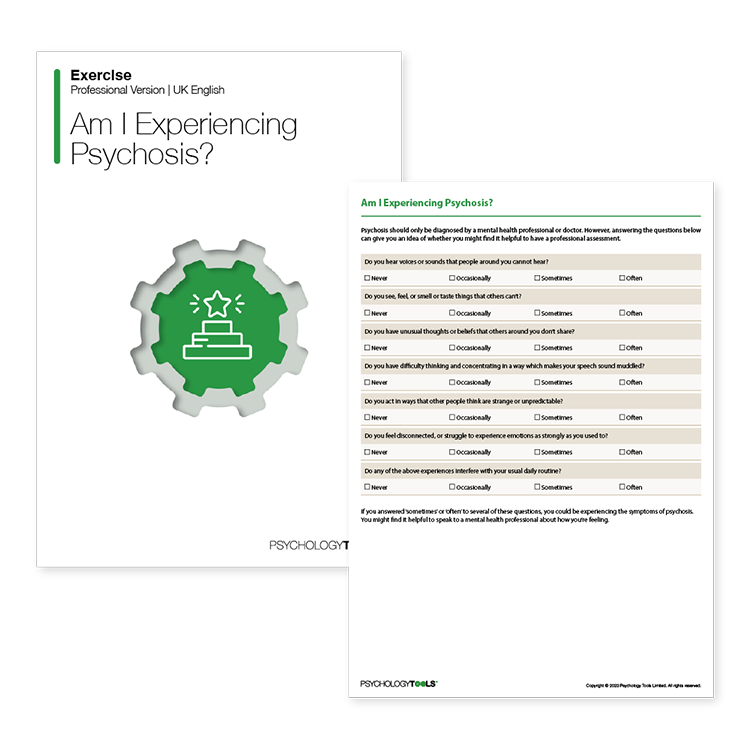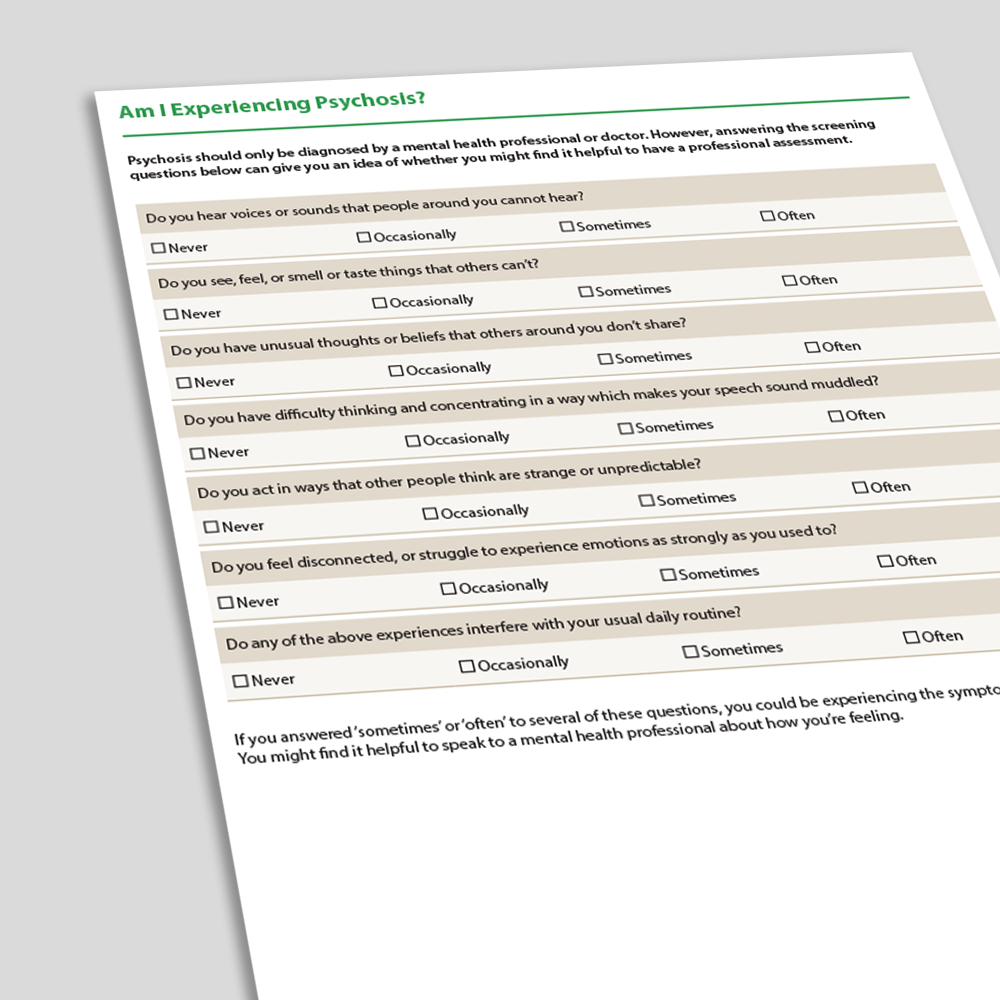Download or send
Tags
Languages this resource is available in
Problems this resource might be used to address
Mechanisms associated with this resource
Introduction & Theoretical Background
Psychosis is an umbrella term which encompasses experiences such as delusions and hallucinations. Up to 1 in 10 people say that they have heard voices or seen things that aren’t there at least once in their lifetime (McGrath et al, 2015; Beavan, Read & Cartwright, 2011).
The DSM-5 diagnostic criteria for a brief psychotic disorder include:
- The presence of one (or more) of the following symptoms, at least one of which must be from the first three items in the following list:
- Delusions
- Hallucinations
- Disorganized speech (e.g. frequent derailment or incoherence)
- Grossly disorganized or catatonic behavior
- Negative symptoms (i.e. diminished emotional expression or avolition)
- The duration of an episode of the disturbance is at least 1 day but less than 1 month, with an eventual return to premorbid level of functioning.
The DSM-5 diagnostic criteria for schizophrenia include:
- The presence of two (or more)
Therapist Guidance
"Some people who report similar experiences to yours have a condition called psychosis. Would you like to try a short quiz that could give us an idea whether this is a problem that troubles you?"
References And Further Reading
- American Psychiatric Association. (2013). Diagnostic and statistical manual of mental disorders (5th ed.).
- Kessler, R. C., Chiu, W. T., Demler, O., & Walters, E. E. (2005). Prevalence, severity, and comorbidity of 12-month DSM-IV disorders in the National Comorbidity Survey Replication. Archives of General Psychiatry, 62(6), 617–627.
- Stansfeld, S., Clark, C., Bebbington, P., King, M., Jenkins, R., & Hinchliffe, S. (2016). Chapter 2: Common mental disorders. In S. McManus, P. Bebbington, R. Jenkins, & T. Brugha (Eds.), Mental health and wellbeing in England: Adult Psychiatric Morbidity Survey 2014. Leeds: NHS Digital.
- World Health Organization. (2019). ICD-11: International classification of diseases (11th revision). Retrieved from https://icd.who.int/
- McGrath, J. J., Saha, S., Al-Hamzawi, A., Alonso, J., Bromet, E. J., Bruffaerts, R., ... & Kessler, R. C. (2015). Psychotic experiences in the general population: a cross-national analysis based on 31 261 respondents from 18 countries. JAMA psychiatry, 72(7), 697-705.
- Beavan, V., Read, J.,


